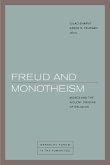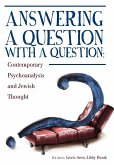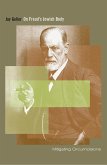What makes a person Jewish? Why do some people feel they have physically inherited the memories of their ancestors? Is there any way to think about race without reducing it to racism or to physical differences? These questions are at the heart of Racial Fever: Freud and the Jewish Question. In his final book, Moses and Monotheism, Freud hinted at the complexities of Jewishness and insisted that Moses was really an Egyptian. Slavet moves far beyond debates about how Freud felt about Judaism; instead, she explores what he wrote about Jewishness: what it is, how it is transmitted, and how it has survived. Freud's Moses emerges as the culmination of his work on transference, telepathy, and intergenerational transmission, and on the relationships between memory and its rivals: history, heredity, and fantasy. Writing on the eve of the Holocaust, Freud proposed that Jewishness is constituted by the inheritance of ancestral memories; thus, regardless of any attempts to repress, suppress, or repudiate Jewishness, Jews will remain Jewish and Judaism will survive, for better and for worse.
Hinweis: Dieser Artikel kann nur an eine deutsche Lieferadresse ausgeliefert werden.
Hinweis: Dieser Artikel kann nur an eine deutsche Lieferadresse ausgeliefert werden.








